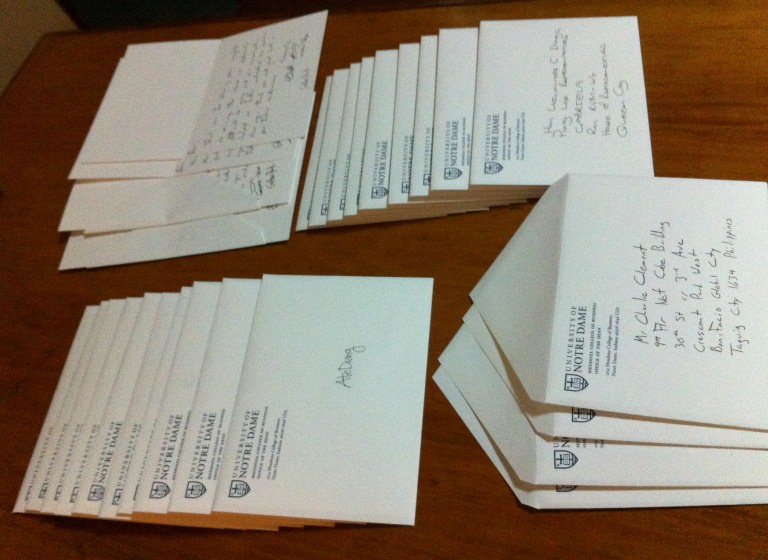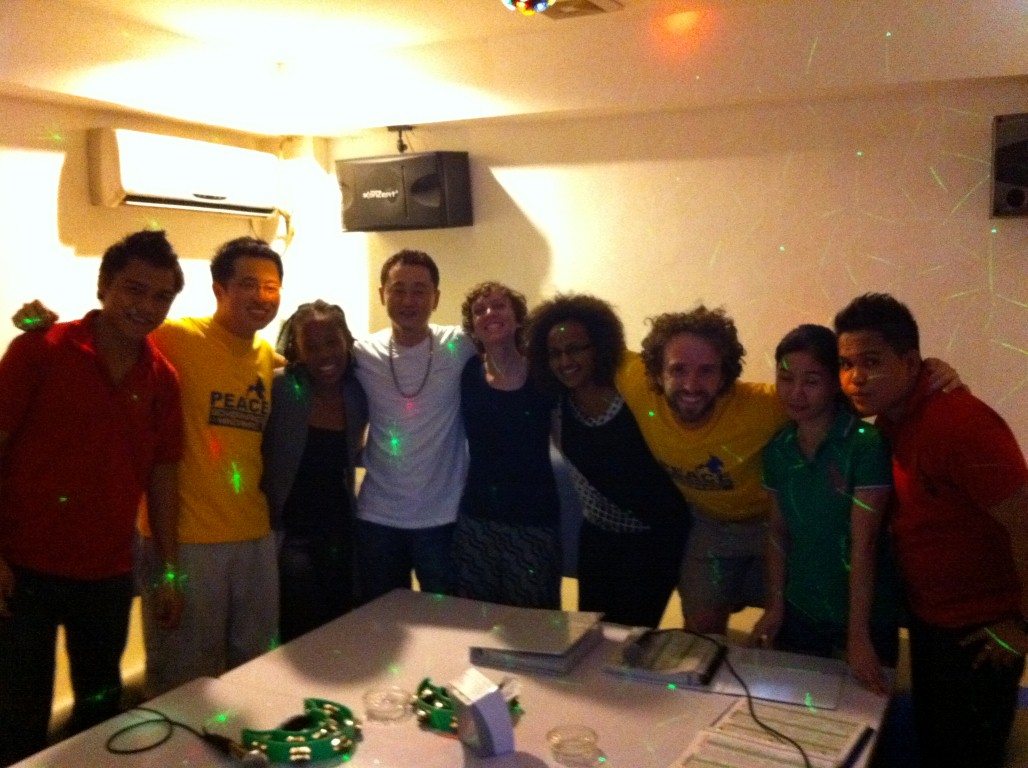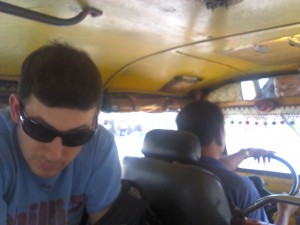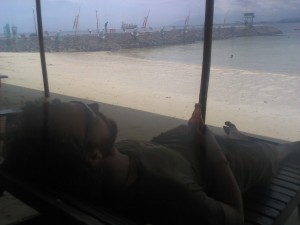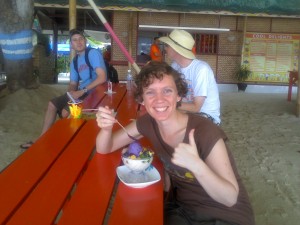[To properly enjoy this post you should be singing Boyz II Men – End of the Road in your head]
Here we are at last, after meeting with 30 organizations over a total of more than 43 hours, we have reached the end of the road here in Manila. Today we gave our final presentation to the CRS colleagues we have come to think of as dear friends. Afterwards we shared a short lunch and joked about the cherished moments of the past two weeks as we visited a variety of metropolitan and rural areas. It was hard to say goodbye but we were comforted by the fact that one of our new friends will be coming to visit Notre Dame soon.
My favorite memory of the trip was meeting with the Bishop Dela Cruz in Kidapawan. After having heard so much about how anti-mining the church was, it was a pleasant surprise to find that our assumptions around the stance of the various clergy were not only challenged but proven false. For me (and our team), the Bishop represents more of what is needed here in the Philippines: moderation. People to take the middle ground and approach issues with open minds and ears. People who aren’t afraid to talk to both sides without fear of being labeled as pro or anti. People who make smart, fact-based decisions. Team Philippines felt this was the greatest weakness in the process but was also an area where CRS can contribute much through its networks and dialogue engagement capacities.
Our group also identified a real need for alternative business opportunities beyond the current agriculture vs mining debate. We still felt like the key was empowering local communities to make well-informed, smart decisions. For a lot of the people we came to serve, identifying opportunities outside of farming can be difficult because it’s all they’ve ever known. Since they only see two options, the decision is often black and white. Alternative businesses such as eco-tourism and agricultural support services/processing, among others, can provide those options that empower communities to make better choices about how they leverage the resources they have. The key here is to identify those businesses most appropriate to each community and provide them with the support services, such as financing and training, that will enable these communities to reach their potential. Again CRS is nicely positioned within the NGO space to bring in the proper actors to help.
Over the last two weeks we got a little taste of not only the Philippines and the passionate, vibrant Filipinos but also what it’s like to operate in and face the challenges of doing Business on the Frontlines. Far from being easy or simple, the issues here tend to be complex with hidden actors and long histories as well as many competing and often entrenched interests. While it would be easy to get mired in the turmoil, we sensed that there is much hope here that things can and will get better. People are active and passionate about what’s going on in their country and view the future optimistically. It’s an exciting time to be in the Philippines.
Team Philippines out.
